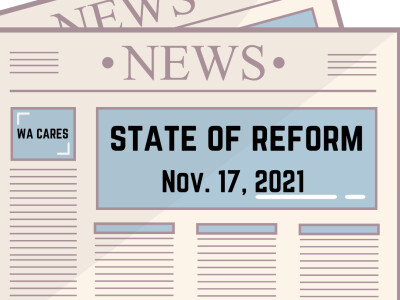AARP Hearing Center

As a first-in-the-nation program, WA Cares has amassed a great deal of media interest. Read on for more coverage over the years.
This will have a big impact on anyone who lives and works in Washington state. Now, we’ll be able to keep our long-term care benefits, even if we leave the state for work, family, or retirement.
As we look ahead to the November election, don’t be fooled by misleading messages from those who intentionally crafted Initiative 2124 to sound like a reasonable change to make the program voluntary."
“And then you lose your economic independence when you’re on Medicaid,” he said. “That’s no one’s plan for retirement.” Private long-term care insurance is available, but costly."



















































































